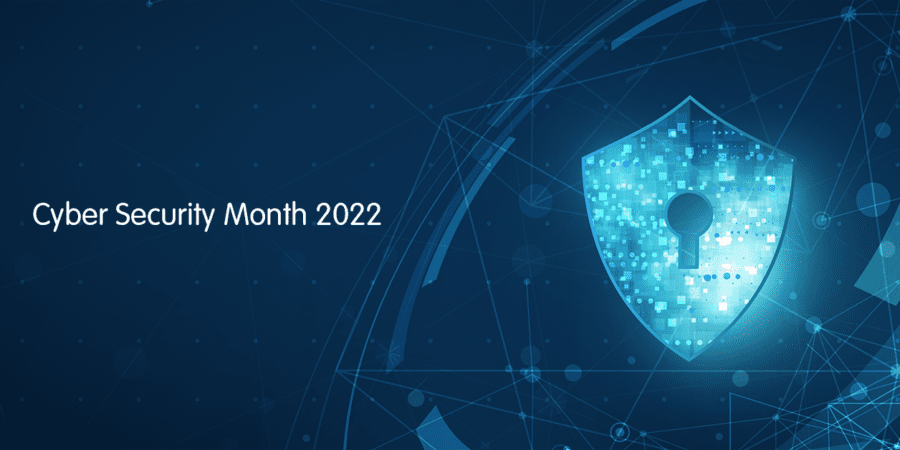Cyber Security Month 2022
October is Cyber Security Month which is aimed at consumers to ensure they are aware of the scams and dangers of using the internet in their daily lives. As internet usage, cloud adoption, and online infrastructure advances, cyber crime becomes ever more sophisticated and frequent.
Cyber criminals prey on unsuspecting users and target personal data, account credentials, and scam money and assets. Educating users on spotting, recognising, and rejecting online threats is the best preventative measure. Doing so also prevents an organisation from suffering from cybersecurity threats due to human error.
As the cybersecurity landscape is always changing, the focus for Cybersecurity Month is different each year. This year, the theme is phishing and ransomware. Phishing is where criminals use fake messages and social media to get you to click a link or download a file which steals your personal information. Unfortunately, it can also install malware on your device. Ransomware is a form of malware which locks your computer, specifically disabling all functions and removing user access until a ransom is paid to release it.
UK businesses are big targets
According to NordLocker’s recent report on ransomware, the UK suffers third highest number of ransomware attacks globally. UK businesses and small businesses in particular are targeted. Significantly, attacks on small businesses in the UK accounted for 62% of all attacks. The reason that criminals target smaller businesses is because they treat cybersecurity as a lower priority and naturally focus their budgets elsewhere.
How to spot and avoid phishing
The signs for phishing may be subtle but indeed, once you know what to look for, you can avoid having your data stolen. Here’s some questions to ask yourself in order to spot a phishing attempt:
- Is it from someone you don’t know?
- Does it have bad grammar and misspellings?
- Does it ask you to click a link or download an attachment?
- Is the language urgent or threatening?
- Does it have an offer that’s too good to be true?
If anything seems suspicious, firstly do not respond to the email and report it to your IT department if it’s a work email. You can also block the sender however, this is only a temporary measure as the attacker may send more messages from other accounts.
How to avoid ransomware
The best way to avoid ransomware is by preparing before it happens. Here some key steps to take:
- Install security software and make sure it’s updated
- Update your software and apps frequently
- Back up your important data, documents, and files
- Use strong passwords and use multi-factor authentication
Download this PDF by National Crime Agency, Europol, and EBF to get more information on other common tech issues and how to avoid them.


